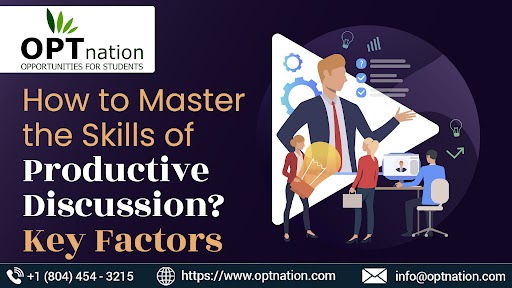We all interact with different people daily, whether coworkers, family members, strangers, or friends. Interaction is how we grow and understand what is required to be done.
But what happens when this interaction breaks down? What happens when we can’t explain our views to others because of conflict or disagreement?
Disagreements and conflicts will always exist as long as human interaction exists. We all don’t think alike nor share the same opinions, so when we communicate, this exchange of views might lead to disagreement or quarrels. If these disagreements are not resolved, it will lead to a break in communication, and nothing meaningful can be achieved.
We see these scenarios play out in family relations, our workplaces, and, more commonly, on social media. We see relationships and plans go to waste because two people or groups cannot resolve their issues or disagreement and indulge in civil discourse. Sometimes, these conflicts arise because people do not know how to engage in civil and productive discourse.
Engaging in civil and productive discussion is a necessary skill. Like every other skill, it can be learned and mastered by constantly practicing the techniques required for productive discourse and applying the civil discourse definition in the workplace. To master productive discourse skills, you need to know what those skills are and how they contribute to meaningful discussion.
Active Listening
Active listening requires one to listen to the speaker. There is a common misconception that if one hears the speaker, they’re listening to them. Nothing could be further from the truth. To actively listen to someone, you have to listen and reply according to whatever the person the speaker said. Active listening doesn’t mean you must agree with whatever the speaker says. It simply means that you must genuinely understand the speaker’s viewpoints or attempt to.
When you actively listen to somebody, you will not be thinking of the best comeback to the person’s statement. You’d be listening to understand the person’s viewpoint. This is a critical skill that is always taken for granted. So, how do you make the person you’re discussing with feel heard? By making eye contact and using other verbal cues.
Making eye contact
Making eye contact doesn’t mean that you should stare at the speaker. It means that you shouldn’t avoid their gaze. Additionally, you can nod when the speaker says something you agree with and use other facial expressions to show that you understand what is being said. This technique usually works hand in hand with active listening, but it is also essential.
Avoid Assumptions
When in doubt, do not assume what the speaker said. Rather, you can rephrase the speaker’s statement and inquire if that is what they meant. In this way, the speaker will know that you are interested in getting to know their point of view, and they, in turn, will pay you the same courtesy. To master these productive and civil discourse skills, one must make them a habit. This implies that you must consistently practice listening actively, making eye contact, not assuming the speaker’s views, sincere curiosity, and open-mindedness in your day-to-day conversations with coworkers, friends, and family.
By making these skills regular habits, one can improve family and friendship bonds, promote intellectual curiosity and achieve higher levels of happiness. Application of these civil discourse skills to conversations involving a group of friends or relatives will greatly reduce the chances of conflicts arising. Even when disagreements occur, using these conversational skills will ensure that the issue is quickly and amicably resolved.
Avoid interruptions
Another valuable skill in productive discourse is allowing the other person to exhaust their point. In other words, do not interrupt the speaker. We all know it is rude to interrupt a person when speaking. Yet, we still find ourselves in these situations repeatedly. We witness the issue the neglect of this skill brings daily, from the cashier at the cash points in the mall to our coworkers.
Conversations that could otherwise be meaningful often end with the parties involved being at each other’s throats. It costs nothing to be respectful and approach a discourse from a perspective of openness and true curiosity. If you are truly curious to learn the other person’s viewpoints, you will actively listen and not interrupt the person. We can’t have meaningful conversations if we don’t give our opponents the space to voice their opinions.
We tend to interrupt people more when we disagree with what they are saying, but this is where being open-minded comes in. You must approach the conversation with open-mindedness and genuine curiosity to have meaningful discourse. Productive conversations are how society is developed. It is how we bring about meaningful change in our communities and workplaces.
Final Thoughts
When you regularly practice and engage in conversations using these skills, the odds are that you will master them and apply them in your everyday conversations with people. Productive conversations help everyone. In the workplace, it contributes to higher productivity and improves the retention rate of employees. Among friends and family members, it reduces bad blood. It promotes an environment where people’s values and beliefs are better understood.

